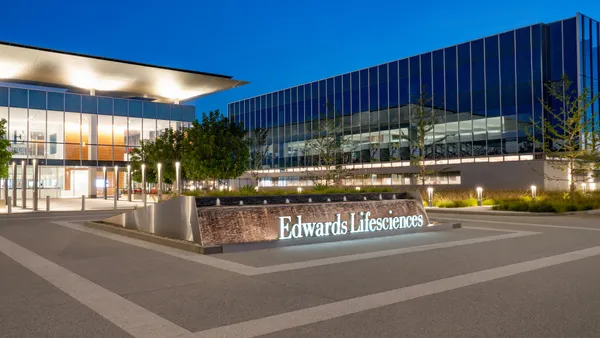Dive Brief:
-
Japan has agreed to reimburse Neuronetics' treatment for major depressive disorder (MDD) at a rate of around $110 per session.
-
The medical device creates a magnetic field to alter electrical energy in the brain, potentially providing relief for MDD patients who have not responded to antidepressant medications.
-
Neuronetics received Japanese regulatory approval for its transcranial magnetic stimulation (TMS) device in 2017 and has now secured reimbursement from the country's single-payer healthcare system.
Dive Insight:
Neuronetics has been at the forefront of the application of TMS to the treatment of MDD, having won FDA approval for an early version of its NeuroStar Advanced Therapy in 2008.
An observational study of 307 MDD patients linked use of the device to statistically-significant improvements after 14 days.
Analysts at William Blair reported the new Neurostar reimbursement code will be available for use in 150 to 200 centers and the company plans to collect long-term registry data in hopes of Japan's Central Social Insurance Medical Council eventually increasing reimbursement.
"If Neuronetics sells just one system to half of its 150-200 targeted accounts in 2020, it could represent up to $3.0 million in upside," the analysts wrote. "If these systems on average treated 15 patients per year ... it could add up to $1.6 million in sales."
The Malvern, Pennsylvania-based company stepped up its global expansion when it entered into a distribution agreement with Japan's Teijin Pharma. That led to a regulatory approval in 2017 and now to coverage by Japan's payer. The coverage is set to begin at the start of June.
Currently, many of Japan's 2.4 million people with MDD are treated as inpatients and stay at psychiatric facilities for 120 days or more. Japan is trying to cut back on those inpatient stays. Neuronetics thinks the coverage decision will make it easier for the treatment-resistant subset, which analysts at William Blair estimated to be around 750,000 in total, to affordably access TMS.
In the U.S., NeuroStar is reimbursed under local coverage determinations and by private payers, although it faced pushback early on. Shortly after FDA cleared NeuroStar, consumer rights group Public Citizen lobbied CMS not to cover the device.
Since then, Neuronetics has secured more widespread coverage of NeuroStar but also seen the U.S. market become more competitive. Today, Brainsway, Magstim and MagVenture have FDA-cleared TMS treatments for MDD.











